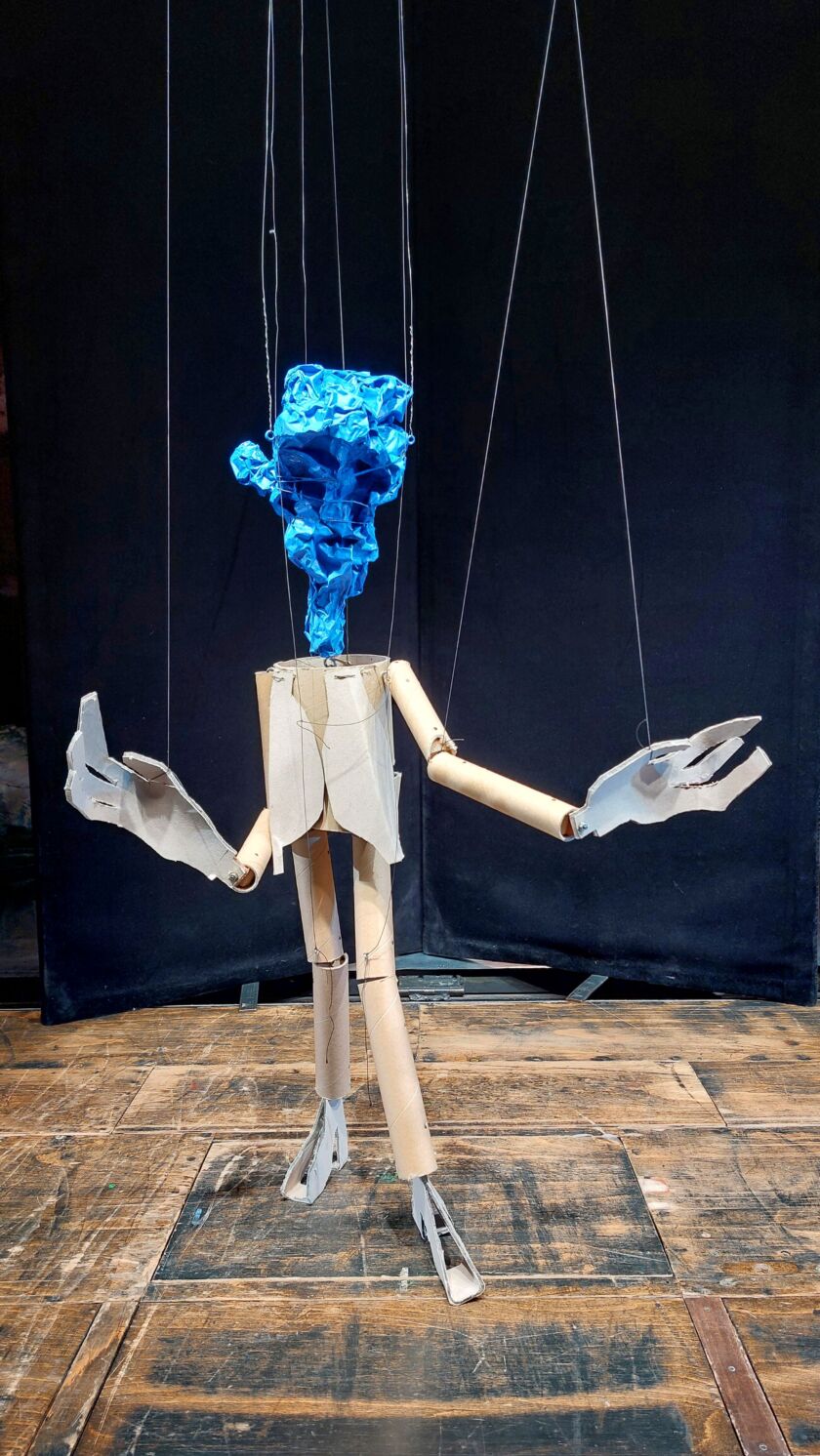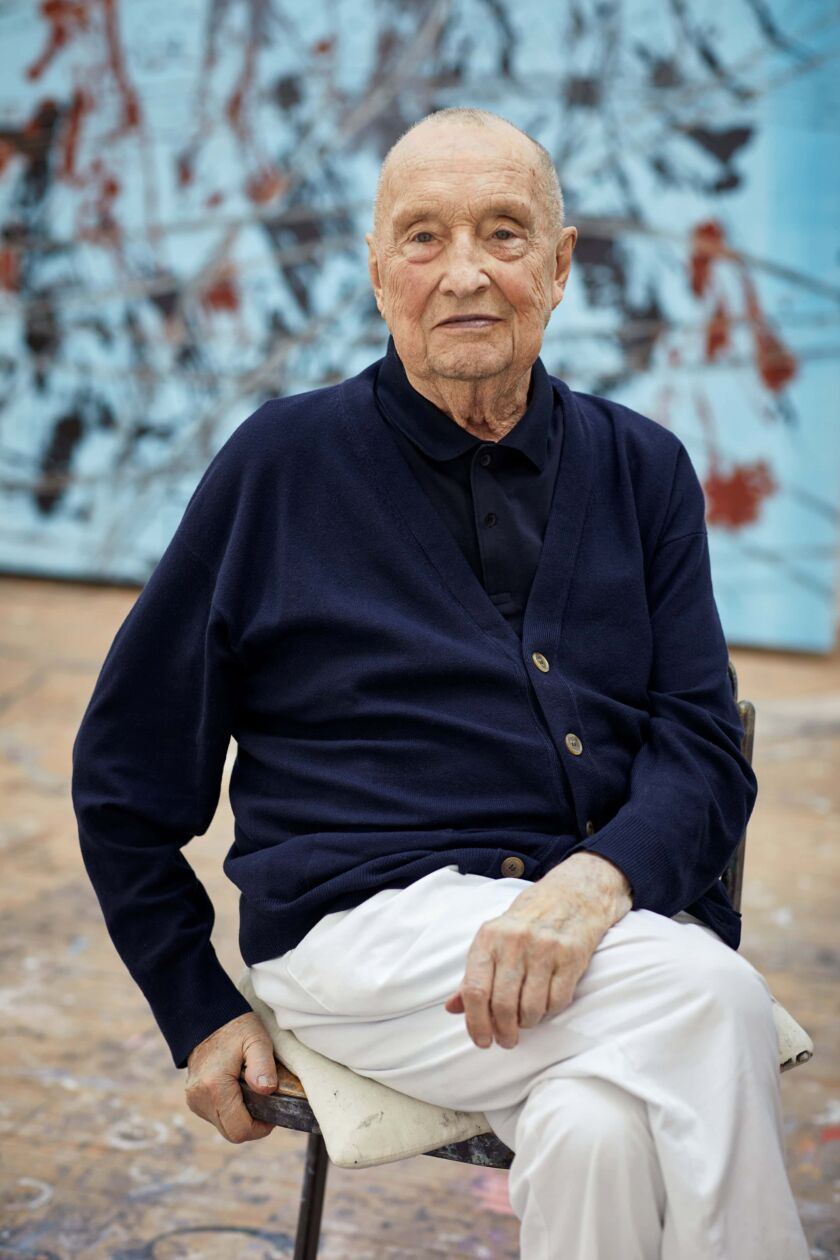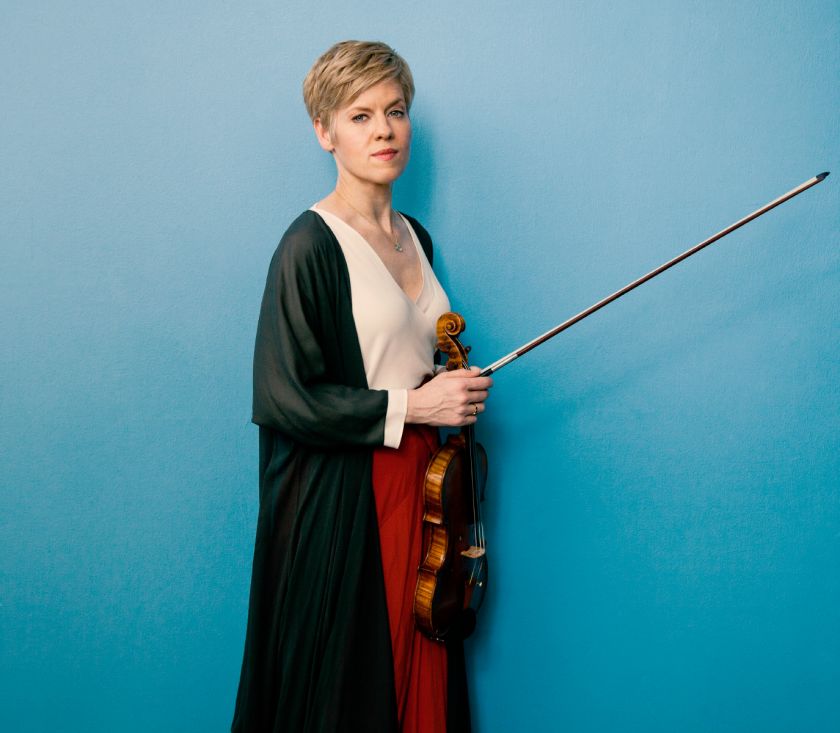Soldiers with Bizarre Puppets
Georg Baselitz has created special puppets for Igor Stravinsky’s stage fairy-tale. The puppets themselves, however, remain mute.


A “fascinating collaboration“ is how Markus Hinterhäuser, Artistic Director of the Festival, describes the one leading to the premiere of L’Histoire du soldat. After all, this stage fairy-tale by Igor Stravinsky is a cooperation with the Salzburg Marionette Theatre; furthermore, the puppets are designed by an artist with one of the greatest names in the contemporary art world: Georg Baselitz.
Turned on their head. Georg Baselitz’ works have been a hot commodity on the international art market for decades; he himself is known to turn not only his subjects, but also conventions on their head. His trademark is the expressive painting of upside-down motifs, often in large formats. Though he starts with a concrete motif and also with reminiscences of art history, a plentiful dose of abstraction has led him to develop his very own visual idiom.
Now Baselitz is creating the puppets for L’Histoire du soldat, the “soldier’s story” in which a soldier deserts, but the devil and a princess also play a role. “I surveyed many puppet performances in preparation, and I noticed that they are always aesthetically very pleasing,” says Baselitz about his approach. “The puppets are always the most beautiful thing.” Now, his work for the Salzburg Festival is “my first attack on the beautiful puppets,” based on the following resolve: “I wanted marionettes who do not allow the characters to be identified by their physiognomy, and I limited myself to a few colours. The devil is red, the king is yellow and so on. These colours define the character. Whatever else is needed to identify them is done by the narrator,” says Baselitz. The narrator introduces the protagonists and the action; the marionettes themselves do not speak. “That makes the whole thing very simple – and the figures are also very simple,” Baselitz describes the process. As Markus Hinterhäuser puts it, he is “giving life to the marionettes” for the first time.

Directing premiere. This production of the Marionette Theatre and the Festival, which have a long tradition of collaborating, will be directed by Matthias Bundschuh, a German actor, author and puppet theatre director who has enjoyed critical acclaim in films such as Die Wannseekonferenz, Shoppen and So viel Zeit, and has been working in marionette theatre for almost 30 years. At the Salzburg Marionette Theatre, he has directed Camille Saint-Saëns’ Carnival of the Animals; at the 2024 Mozart Week, he directed Mozart und Salieri by Nicolay Rimsky-Korsakov, for which he also designed the puppets and the sets. After appearing at the Salzburg Festival as an actor in 2001, 2004 and 2016, he now makes his directing debut at the Festival.
For L’Histoire du Soldat, he is using the German adaptation by Hans Reinhart, which is based on texts by Charles Ferdinand Ramuz. The narrator will be the French-German actor Dominique Horwitz, known from films such as Stalingrad and as a chansonnier; he often appears in productions mixing music and literature, for which he is said to have a profound instinct.
Another remarkable aspect will be the musical treatment of Stravinsky’s composition. The piece is considered a key work of musical modernism; among the musicians is the star violinist Isabelle Faust. Joining her are instrumentalists including Pascal Moraguès, Giorgio Mandolesi, Reinhold Friedrich, Ian Bousfield, Burak Marlali and Raymond Curfs.
Faust is one of the leading violinists of our times. The winner of renowned competitions in her early youth, she regularly works with conductors such as Sir Simon Rattle, Sir John Eliot Gardiner, Daniel Harding and Philippe Herreweghe. During the current season, she has been heard in concert with the London Symphony Orchestra, the Gewandhaus Orchestra Leipzig, the Boston Symphony, Il Giardino Armonico and the Tonhalle Orchestra Zurich. Thus, this performance at the Salzburg Marionette Theatre features some great names which the audience might not have expected in this location.
Text: Theresa Steininger
Translation: Alexa Nieschlag
First published on 31.05.2025 in Die Presse Kultur Spezial: Salzburger Festspiele
